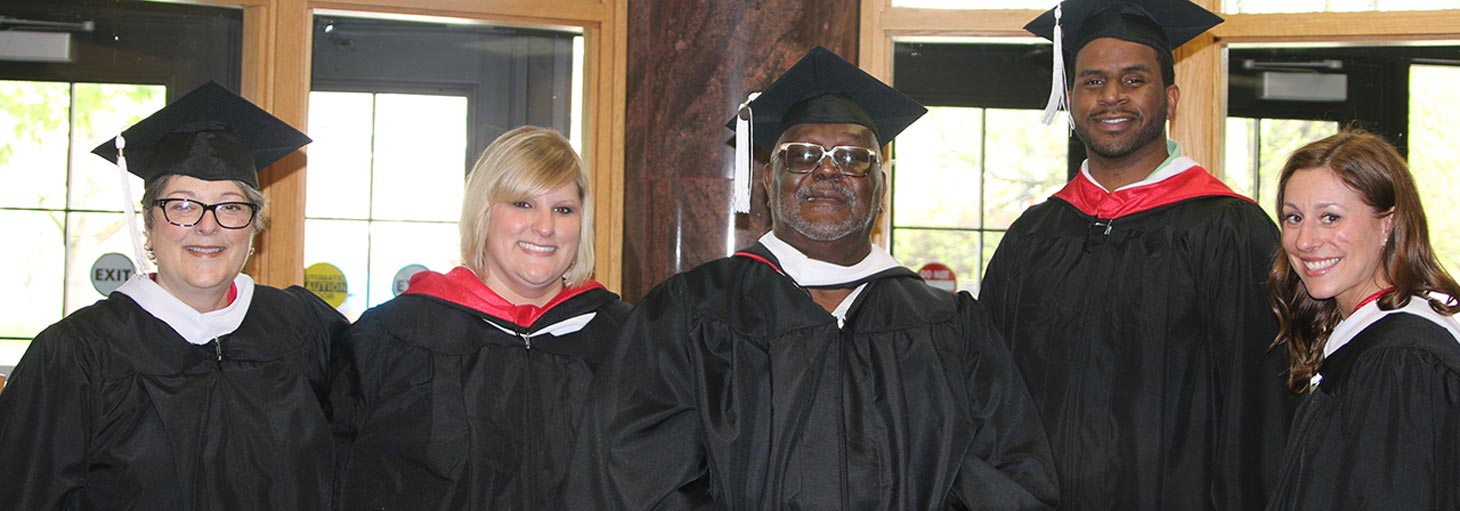Admission Requirements

Admission decisions for the Counseling program are made based on a number of different factors that are viewed in sum, including but not limited to individual qualifications, undergraduate institution and achievement, relevant experience, and overall fit for program. The requirements for admission to the counseling programs include the following:
- An undergraduate overall GPA of 2.75 or higher, or a GPA of 3.0 or higher in the second half of the undergraduate degree program, or a graduate GPA of 3.0 on a previously completed graduate degree;
- A minimum of 15 hours in the behavioral sciences including at least one course in statistics;
- A letter of intent explaining your interests and qualifications for admission into the University of Detroit Mercy counseling program and pursuit of a career in counseling;
- Current resume;
- Written responses to essay questions;
- Three letters of recommendation from individuals able to speak to your potential in the counseling field;
- An interview with the faculty.
Admission Deadlines
- May 1 for Fall Semester
- October 1 for Winter Semester
- February 1 for Summer Semester
Frequently Asked Questions
Is there scholarship funding available?
Yes, the Counseling program directly provides approximately $35,000 in scholarship funding annually to enrolled students. Scholarship awards range from $3,000 - $8,000 and typically 5-6 are awarded to students for Graduate Research Assistantship. The program also awards one need-based scholarship each year.
How are classes structured?
Classes are designed for working adults with each class meeting one evening per week, Monday – Thursday, either 4 p – 6:30 p or 6:40 p – 9:10 p in Fall and Winter and from 4:30 p – 7:30 p in summer. Classes are held year-round from late August through July with approximately 3 weeks off in August, as well as, semester and holiday breaks.
What is a typical course load?
A typical course load is 2-3 courses per semester.
Are there opportunities for students to pursue their own line of research during the program?
Yes. Students who wish to pursue a specific area of research are encouraged to do so and often do so throughout specific courses by focusing on a topic for particular assignments as well as by working directly with a faculty member.
How do the practicum and internship work?
The Practicum occurs over one semester in our campus-based Counseling Clinic that serves the public. Practicum students provide individual and group counseling in the Clinic while being supervised by both an individual and group supervisor.
The Practicum is typically completed the second to final semester, and is followed by a 600 Internship. The Internship allows Counseling students to fulfill the duties that a professional counselor fulfills at an organization or school while being supervised by an on-site supervisor and attending a group supervision and seminar on campus. The Internship typically takes 5 ½ - 6 months to complete depending on the number of hours per week worked.
Is there assistance provided in securing an internship site?
The Counseling program has an extensive array of community partners that serve as internship sites. Placement in an internship site is coordinated with support from the faculty internship coordinator and typically involves an interview at the site similar to those seeking employment. More often than not, interns are hired by the internship organization.
For questions regarding application requirements and/or the admission process to the Counseling program, please contact:
Jennifer Goethals, Associate Director, Graduate Admissions
313-993-3309
For specific questions regarding the graduate programs in Counseling, contact the Program Directors:
Dr. Nancy Calleja calleyng@udmercy.edu Addiction Counseling
Dr. Kelli Anderson anderskb@udmercy.edu Clinical Mental Health Counseling
Dr. Tahani Dari darith@udmercy.edu School Counseling
